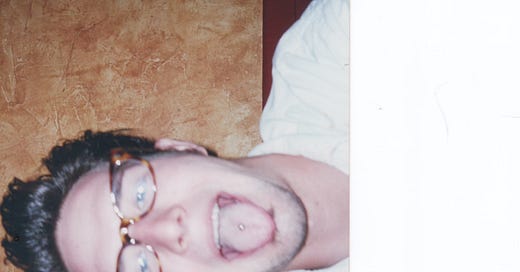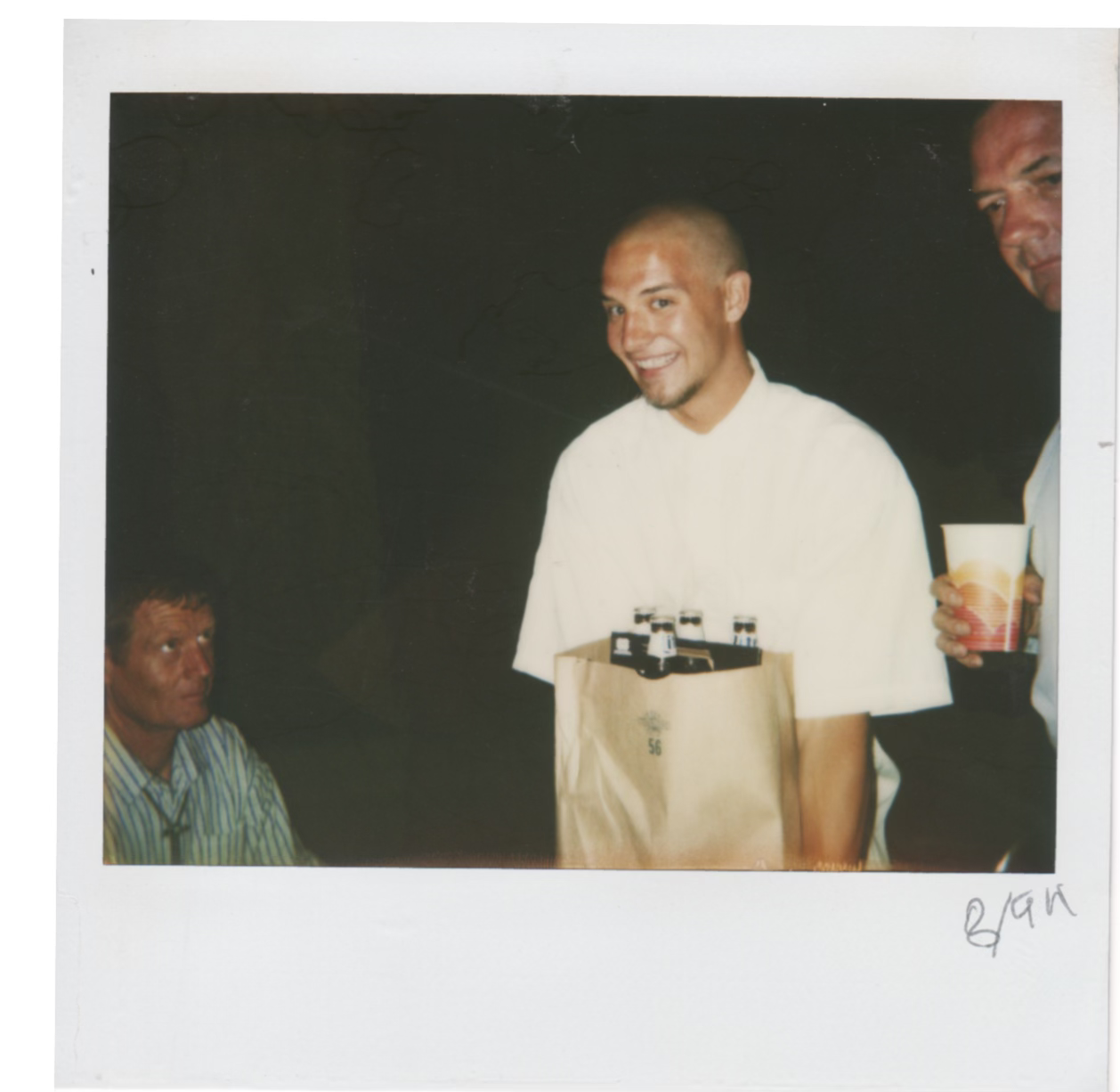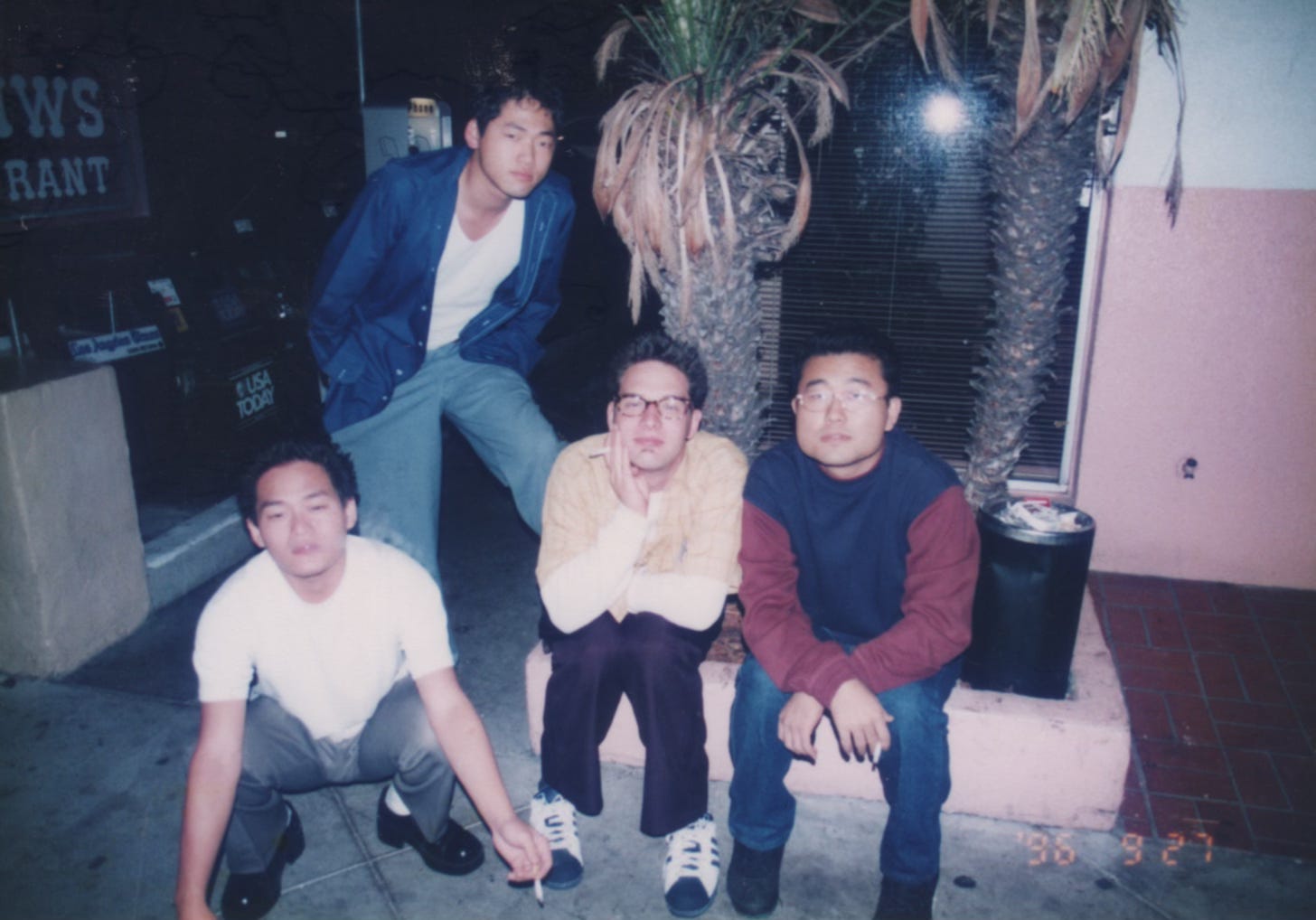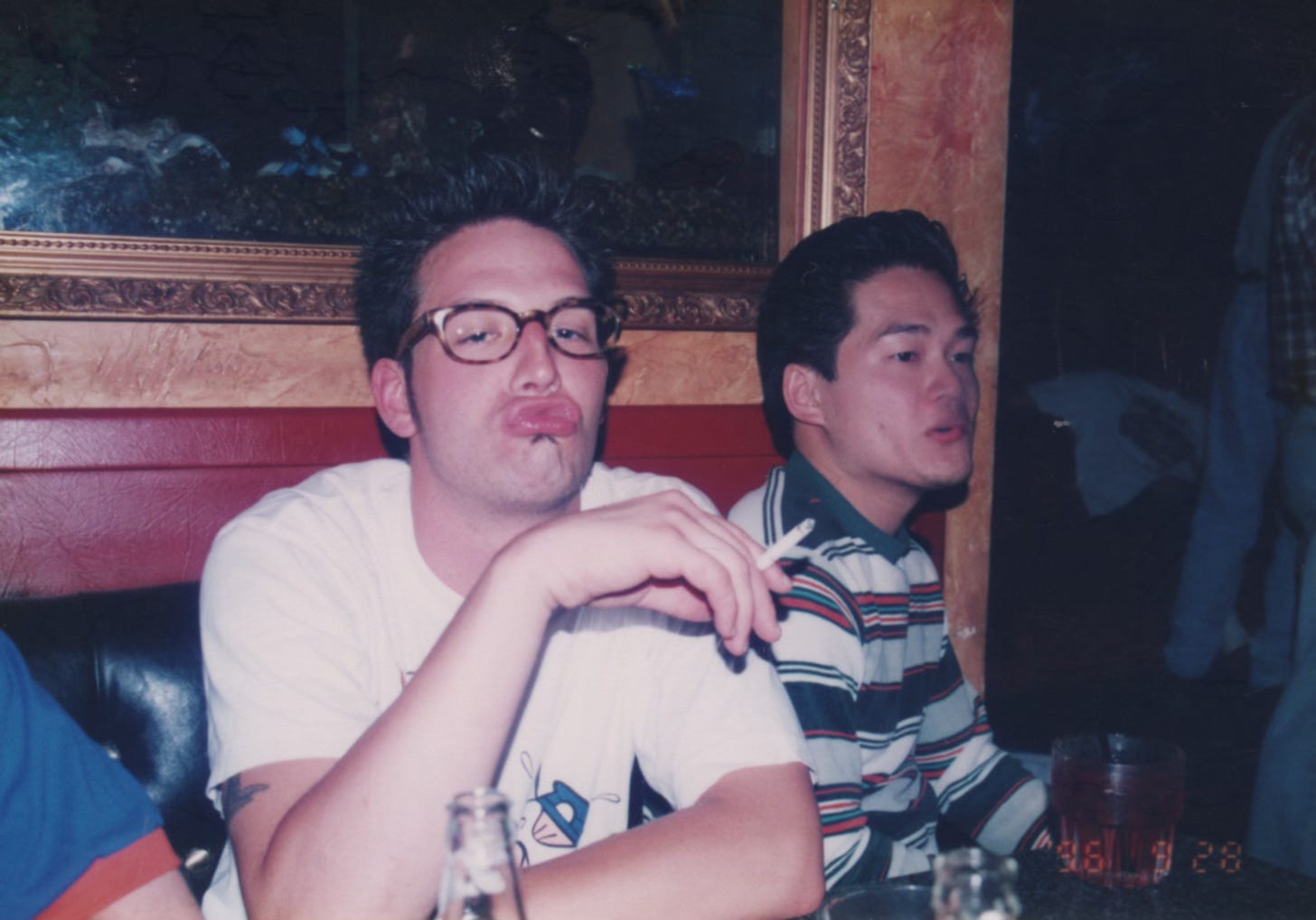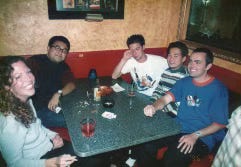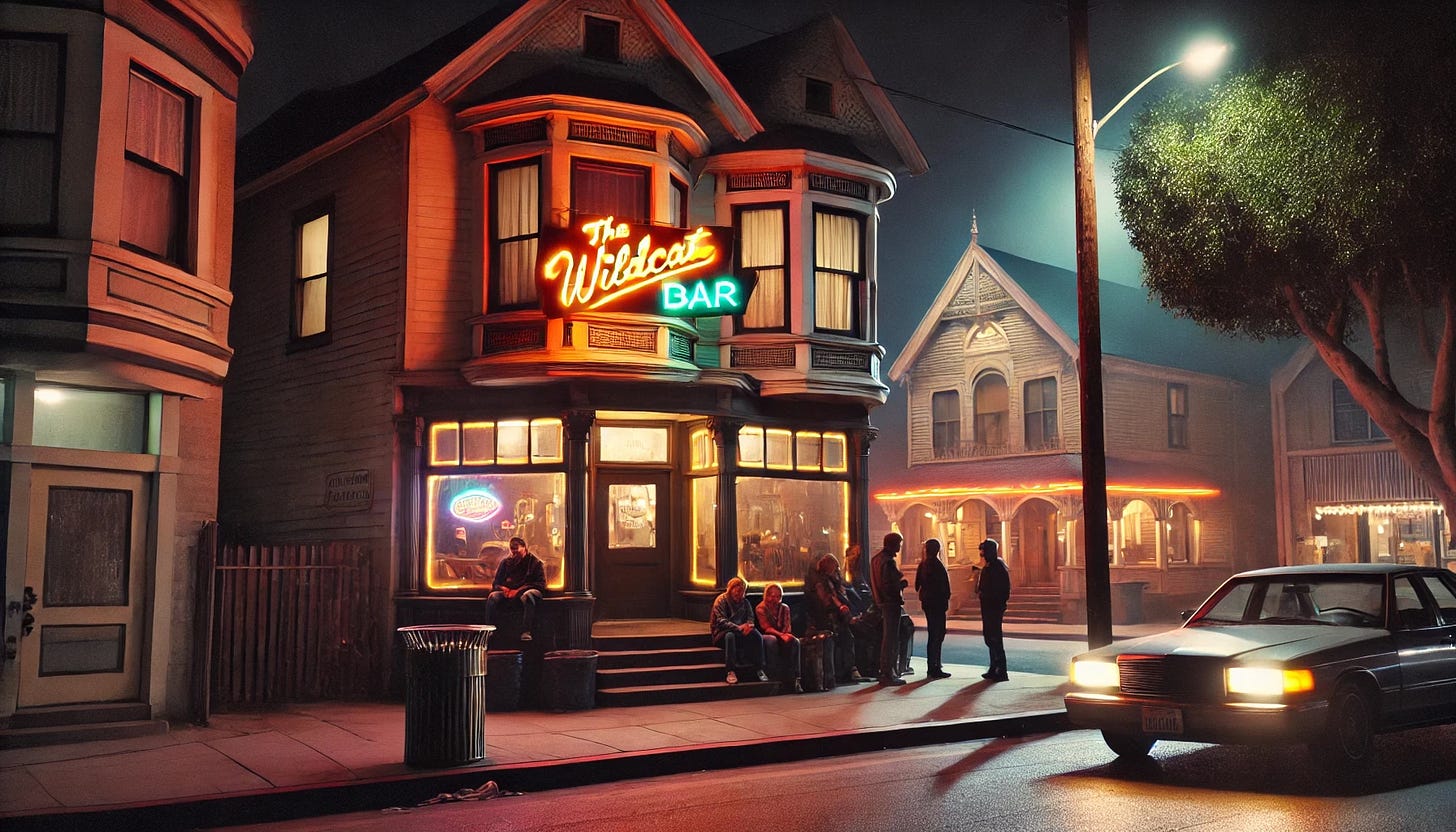Wild Nights and Broken Compasses: A Dive Bar Memoir
How Friendship, Chaos,and a Bar Called The Wildcat Saved Me from Myself.
This was our place. Not just a hangout, but almost a second home—we (mainly me) were there four or five nights a week, like clockwork. Back then, it felt like we belonged there, like we’d carved out our own little corner of the world.
We started going before they even had bouncers or doormen, back when you could just wander in without much fuss. When the doormen eventually showed up, they hardly ever made us wait. They knew us; we were part of the fabric of the place. The only time we’d find ourselves stuck in line was on nights like fiesta, when the place hit capacity, and the fire department started keeping a close eye on things. Even then, we knew the drill—those nights weren’t about exclusivity, just good old-fashioned crowd control.
Who were we? On any given night, it could be anywhere from two to ten of us, a ragtag crew trying to claim our territory in the corner of the bar. Back then, we always aimed for a booth—the kind with cracked vinyl seats and a permanent haze lingering overhead, because, yes, you could still smoke in bars. Remember that? Smoking. Indoors. It feels like something out of a dystopian novel now, but at the time, it was just life. Funny how things change. These days, if I’m driving behind a rusted-out Oldsmobile puffing out cigarette smoke, I’ll either hit the gas to pass them or take the next turn just to avoid the smell. Back then, though? We sat in that smoke cloud like it was part of the ambiance.
When the law eventually caught up with modernity and banned indoor smoking, we adapted. We’d grab a table outside in the back and “hold court,” as we liked to call it. That table was our little island, our constant in a sea of chaos.
I was 22 when my dad died, and, well, I fell apart. Calling me a train wreck almost feels too kind—more like a train wreck that somehow caused a second train wreck. I was drunk five, maybe six nights a week, and I wasn’t picky about what else I put in my system. Pills, powder, paper—if you handed it to me, I took it. My one rule, shaky as it was, was no heroin or crack. Everything else? Fair game.
Through it all, my friends held me together. They made sure I ate something now and then, got a little sleep, and at least looked like a functioning human being. They were the family I needed when I felt like I was alone. I have very strong memories of NS and HG making sure that I was good, I was carrying a lot back then—a lifetime of abandonment and unmet expectations. But we’ll get into that mess later. For now, let’s just say I was barely holding on, and they made sure I didn’t let go completely.
The Wildcat. Our own little SoCal version of Cheers. Everyone knew our names, our drinks (Sapphire and tonic, or Absolut and cranberry—no surprises there), and usually where to find us. We knew the staff, the regulars, and even the quirks of the jukebox. It was our kingdom, in a scrappy, slightly sticky-floor kind of way.
Of course, not all nights were golden. One time, I got especially messy. There was this girl I used to hook up with, and she happened to be there... because her new boyfriend worked there. Naturally, he was one of the bouncers because why wouldn’t he be? And is it just me, or does every bar have that one bouncer who looks like Mr. Clean, arms crossed, intimidating but approachable in the right light?
Anyway, I was completely lit that night—four or five drinks deep, someone had handed me a bump of coke, and I was flying on liquid courage and the superpower of cocaine. Seeing her for the first time in years threw me off, but not enough to stop me from making some spectacularly bad decisions. While her boyfriend was dutifully checking IDs at the door, I was busy convincing her to sneak off with me... to his car. I was in the parking lot having sex with her in his car. Yeah. HIS car. Even as I type this, I’m cringing. What was I thinking? I wasn’t. My moral compass was not just off—it was somewhere in another time zone.
Then there was the sushi joint. Working there gave us this weird, unspoken street cred. We’d hook up bartenders and wait staff with free sushi rolls or sake bombs when they were at the restaurant, and they’d return the favor in kind. Drinks flowed. Tabs magically disappeared. Life felt like a series of mutually beneficial bad decisions.
At one point, there was this golden era where HG, TO, me, and the other token white guy, TH, all lived together in an old Victorian house my family owned. It was four blocks from the Wildcat and another four blocks to the sushi joint. Talk about convenience—I rarely needed to drive. Most nights, I could get completely obliterated, stumble my way home, or hit up Carrows, the late-night diner, for pancakes and post-party gossip.
It wasn’t sustainable, but for a while, it felt like the closest thing to freedom. And recklessness. And youth.
You never knew exactly when your friends would show up, but you always knew they would. That was the beauty of it. No texts, no group chats, no frantic “Where are you?” calls. We just knew where to be and when to be there. Like it was wired into our DNA.
The Wildcat wasn’t just a bar; it was our third place. Not home, not work—just the space where we existed most fully. It was where we laughed the loudest and maybe cried a little too. It was where we belonged, or at least where we convinced ourselves we did.
I can’t even fathom how much money I poured into that place over the years—drinks, jukebox plays, tips for bartenders who knew us by name. It’s almost embarrassing to think about. For at least four or five years, we were fixtures there. Posted up at the same tables, ordering the same drinks, living the same chaotic, glorious routine. And we wouldn’t have had it any other way.
I can’t help but wonder what life is like now. Do people still live like that? Or have we traded in the chaos and camaraderie for something more curated, more… filtered? Back then, my heroes were the quintessential tortured artists: Charles Bukowski, Terry Gilliam, William Burroughs, Jim Morrison—not exactly paragons of stability or sobriety. I was convinced the tortured artist lifestyle was the ultimate aspiration, a badge of honor in a world that felt too clean and predictable. I probably gave myself gut rot with all the cheap red wine, coffee and cigarettes I consumed.
I even saw myself in Ethan Hawke’s character, Troy, from Reality Bites. He was the blueprint for the Gen X slacker-philosopher: brooding, sardonic, and impossibly cool. He oozed that 1990s brand of angst, blending intellectual arrogance with just enough emotional vulnerability to make you root for him. Troy had this sharp tongue and quick wit, using humor and intelligence as both armor and a weapon. He hid his insecurities behind a thick layer of cynicism, rolling his eyes at societal norms and dismissing ambition as a hollow pursuit. And his dad? Dead. Just like mine. It was like we were cut from the same flannel-wearing, chain-smoking cloth.
Not the healthiest role model, I’ll admit. But man, it was a great movie. And then there was Winona Ryder—my ultimate crush. She played Lelaina, this budding documentary filmmaker who got lured into the corporate world but fought back to reclaim her indie cred. She was whip-smart, awkward in all the right ways, and utterly magnetic. Seriously, if you haven’t seen it, go watch it. It’s the quintessential ’90s indie movie—raw, messy, and painfully relatable. It captured that feeling of being caught between who you want to be and who the world expects you to become.
If you needed to find someone, the Wildcat was a sure bet. It was one of three places where you’d check, and the other two were just a couple of blocks away. It was like a tiny, boozy ecosystem, and everyone moved within it.
At that point in my life, I needed the Wildcat. It wasn’t just a bar—it was my refuge. I needed a place where I could feel comfortable, even safe. A place where the noise of the jukebox could drown out the sadness that sat too close to the surface. I needed the kind of space where you could slide into a booth next to a friend, no words required. Just their presence was enough.
That was all that mattered then—knowing you weren’t alone, even when everything inside you felt like it was breaking apart.
It’s Christmas night, and I’m here, spinning vinyl and letting the howl of coyotes fill the quiet winter air as I write. How was your Christmas? Was it peaceful? Or were you, like me, struck by how different the holidays feel these days?
I don’t know if it’s just getting older, or if the world has shifted in some irreversible way, but it seems like the holidays carry more weight now—and not in the sentimental, hot-cocoa-commercial kind of way. There’s pressure: pressure to make it magical, to spend money you don’t have, to navigate strained relationships, or maybe just to pretend everything’s fine for a day or two. Combine that with the constant background hum of a world on fire, and it’s no wonder most people are ready to wrap up the year like a gift they can’t wait to return.
I think that’s why places like the Wildcat mattered so much back then. They weren’t just bars; they were anchors in the chaos. Somewhere to escape the noise, even if the escape involved more noise of a different kind. They were where we found each other, where we let ourselves feel a little less alone, even when everything else felt impossibly hard. I can see all the smiling and laughing faces of my friends; TO, HG, SA, JH, NS, DL, CT, JB, LA, MA, LF, SE and many many more.
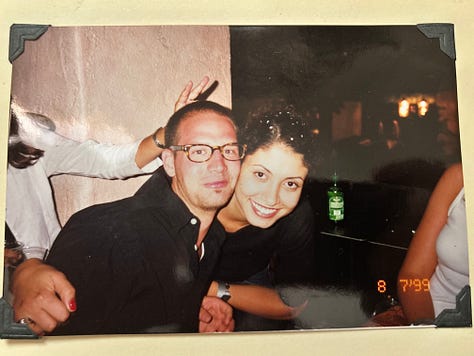
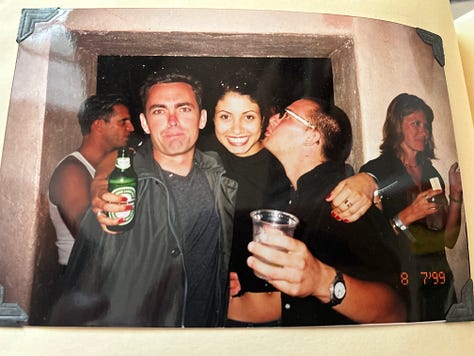
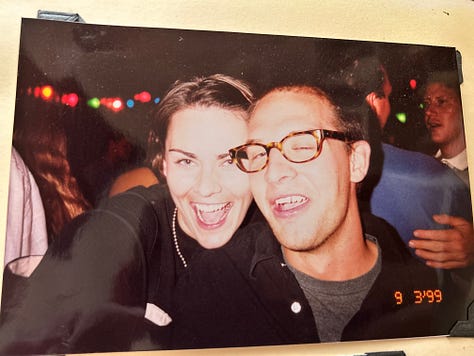
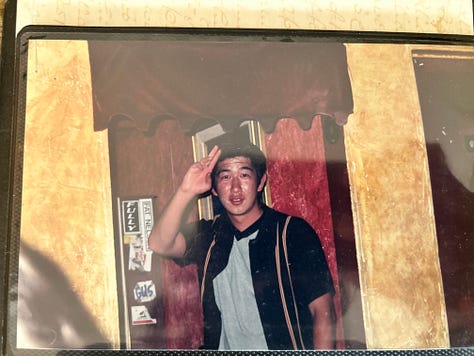
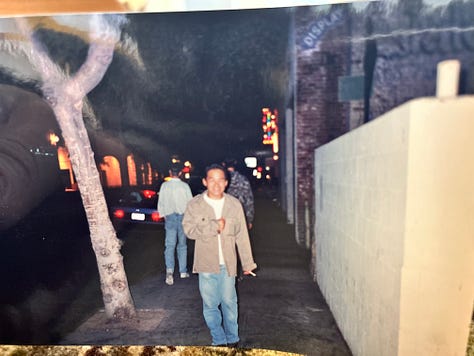
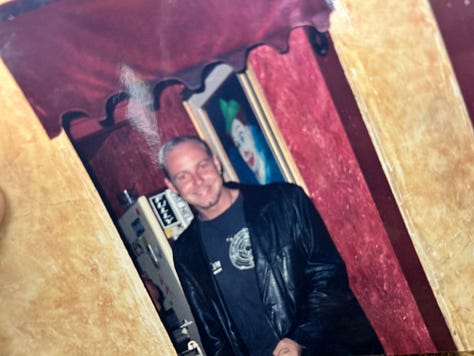
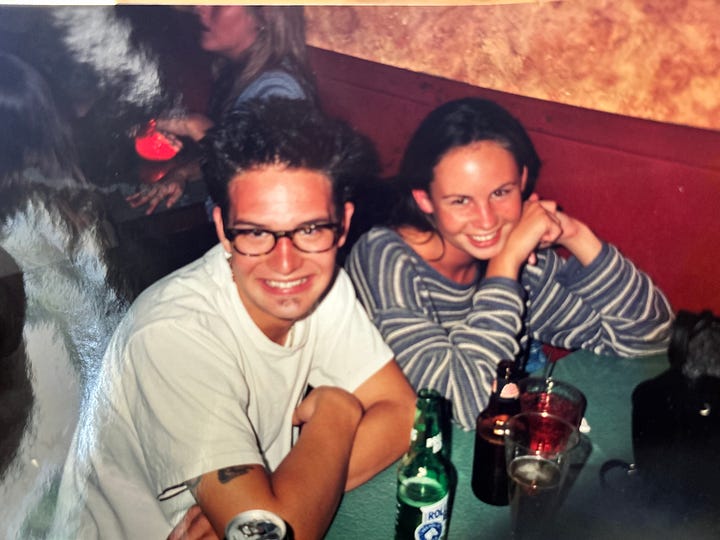
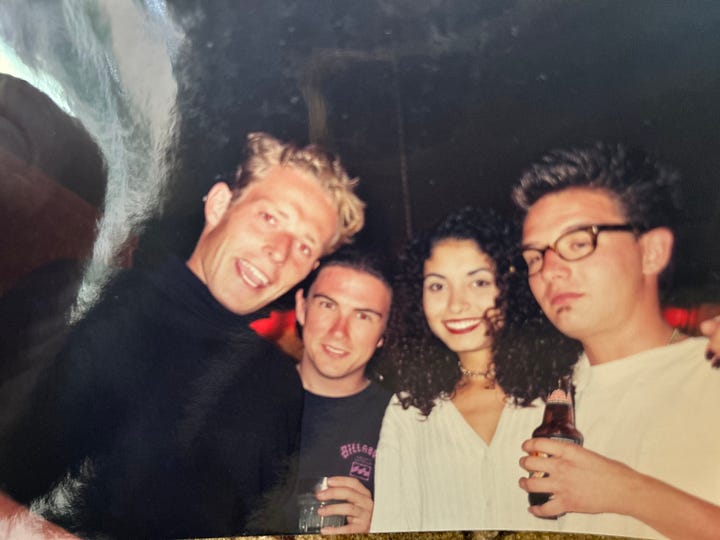
Maybe that’s what we’re all still searching for now, in this strange in-between time when the holidays are done but a new year hasn’t yet begun—a place to feel okay. A connection. Something that makes us feel like the sadness isn’t swallowing us whole.
So here’s to finding that space, whether it’s a bar, a coffee shop, a friend’s couch, or a quiet night with a record player and a notebook. And here’s to knowing that we all need it sometimes. Because at the end of the day, we’re all just trying to hold on to the pieces that make us feel human.
Happy Holidays, and cheers to the places, and the people, that help us get through.
Love & Light
MM

